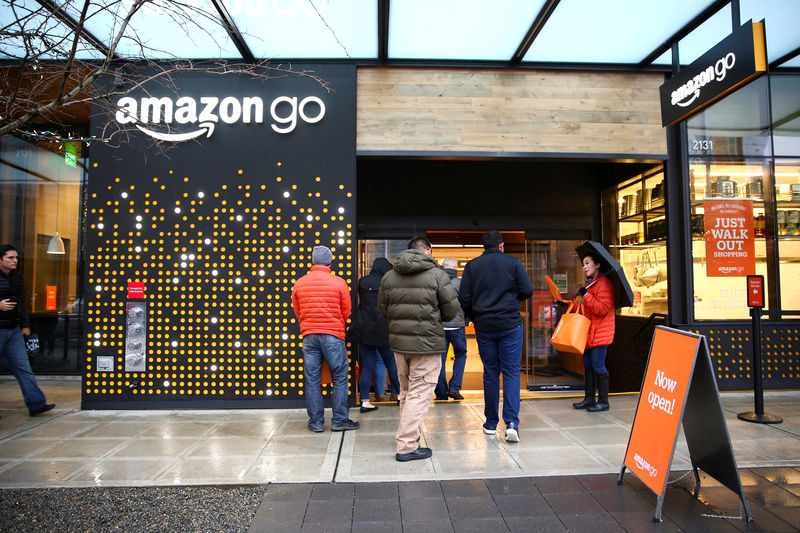This post was originally published on this site

Shares of the e-commerce company rose 11% in trading after the bell.
Amazon (NASDAQ:AMZN), like much of the retailer industry, is facing a reckoning. Major rival Walmart (NYSE:WMT) Inc this week warned it would make much less this year than it once expected. U.S. consumer confidence has tumbled to a recent low, and some are sticking to lower-priced essentials to manage inflation.
That has not stopped Amazon. The online retailer projected net sales between $125 billion and $130 billion for the summer period, while analysts were expecting $126.42 billion, according to IBES data from Refinitiv.
Chief Executive Andy Jassy said in a press release that the company is “seeing revenue accelerate as we continue to make Prime even better for members, both investing in faster shipping speeds, and adding unique benefits such as free delivery from Grubhub for a year.”
A boost is expected from Amazon’s marketing blitz Prime Day, which took place in July. Amazon said it was the biggest rendition of the event by unit sales.
Still, the rosier-than-expected sales outlook comes at a precarious moment for the Seattle-based retailer. A changing of the guard has heralded the departure of Consumer CEO Dave Clark and corporate affairs head Jay Carney, as well as two of the company’s most senior Black executives. A period of record profit gave way in the first quarter of 2022 to Amazon’s first quarterly loss in seven years.
Ultimately, Amazon lost $2 billion in the just-ended second quarter, including a pre-tax valuation loss of $3.9 billion from its investment in Rivian Automotive Inc. But the company beat expectations in posting operating income of $3.3 billion, relative to the $1.8 billion analysts expected, according to research firm FactSet.
“Despite continued inflationary pressures in fuel, energy, and transportation costs, we’re making progress on the more controllable costs we referenced last quarter, particularly improving the productivity of our fulfillment network,” Jassy said.
After racing to match demand during the height of the COVID-19 pandemic, the company now is slowing warehouse openings to rein in costs. It has not filled roles that became vacant in some facilities, and it has paused a major office space expansion in Bellevue, Washington.
The world’s biggest online retailer said net sales were $121.23 billion in the second quarter, compared with analysts’ expectations of $119.09 billion, according to IBES data from Refinitiv.



